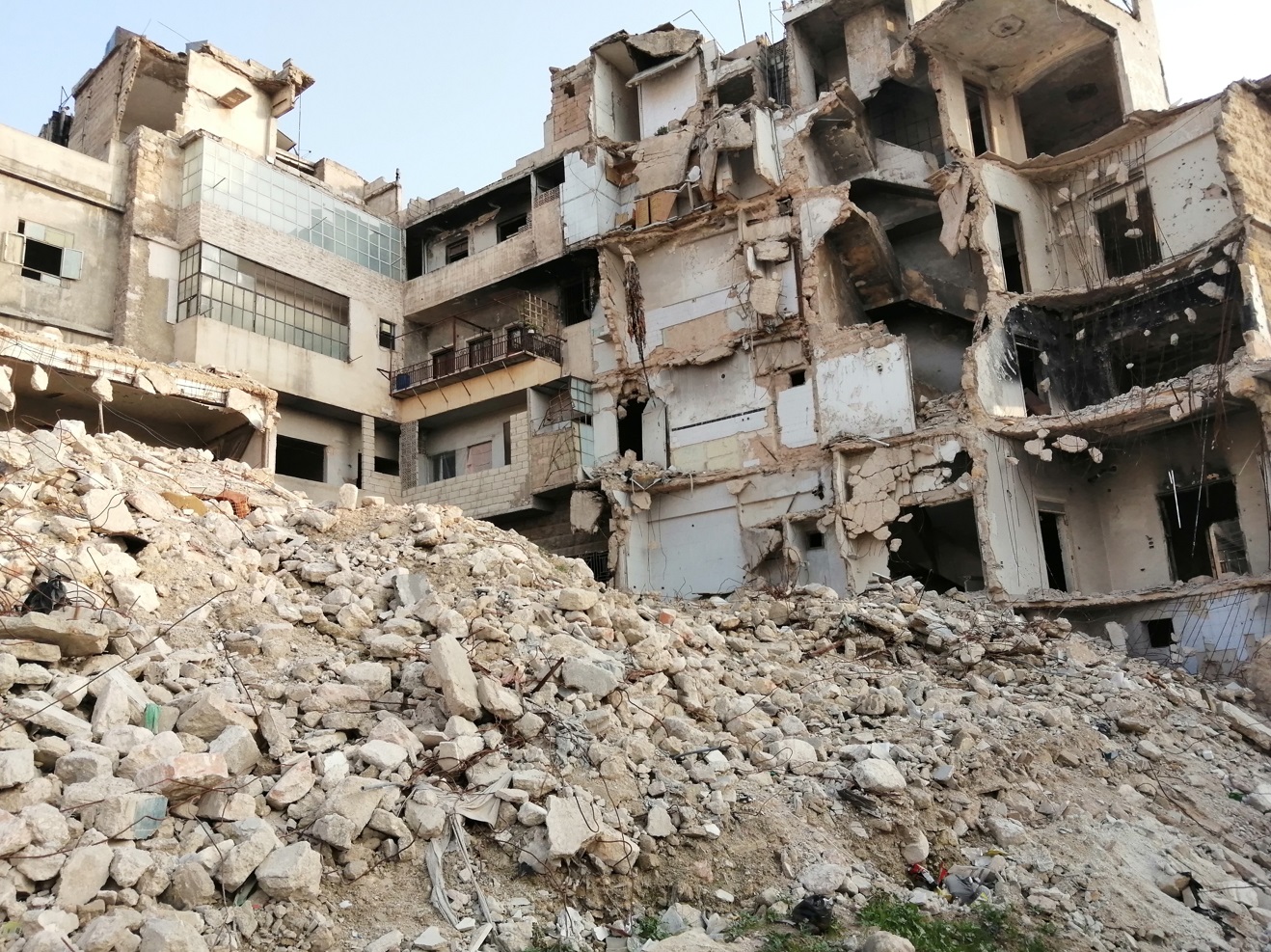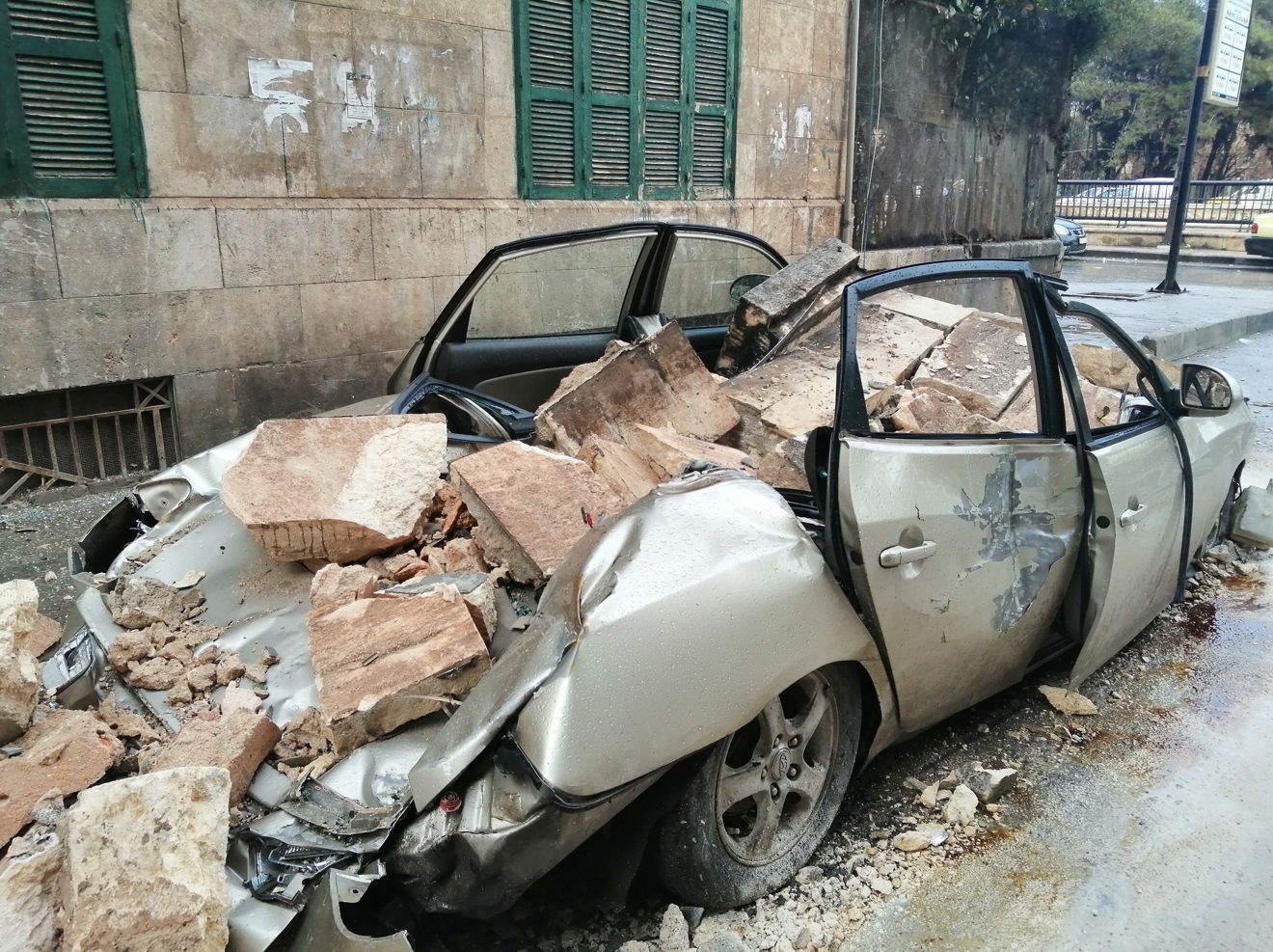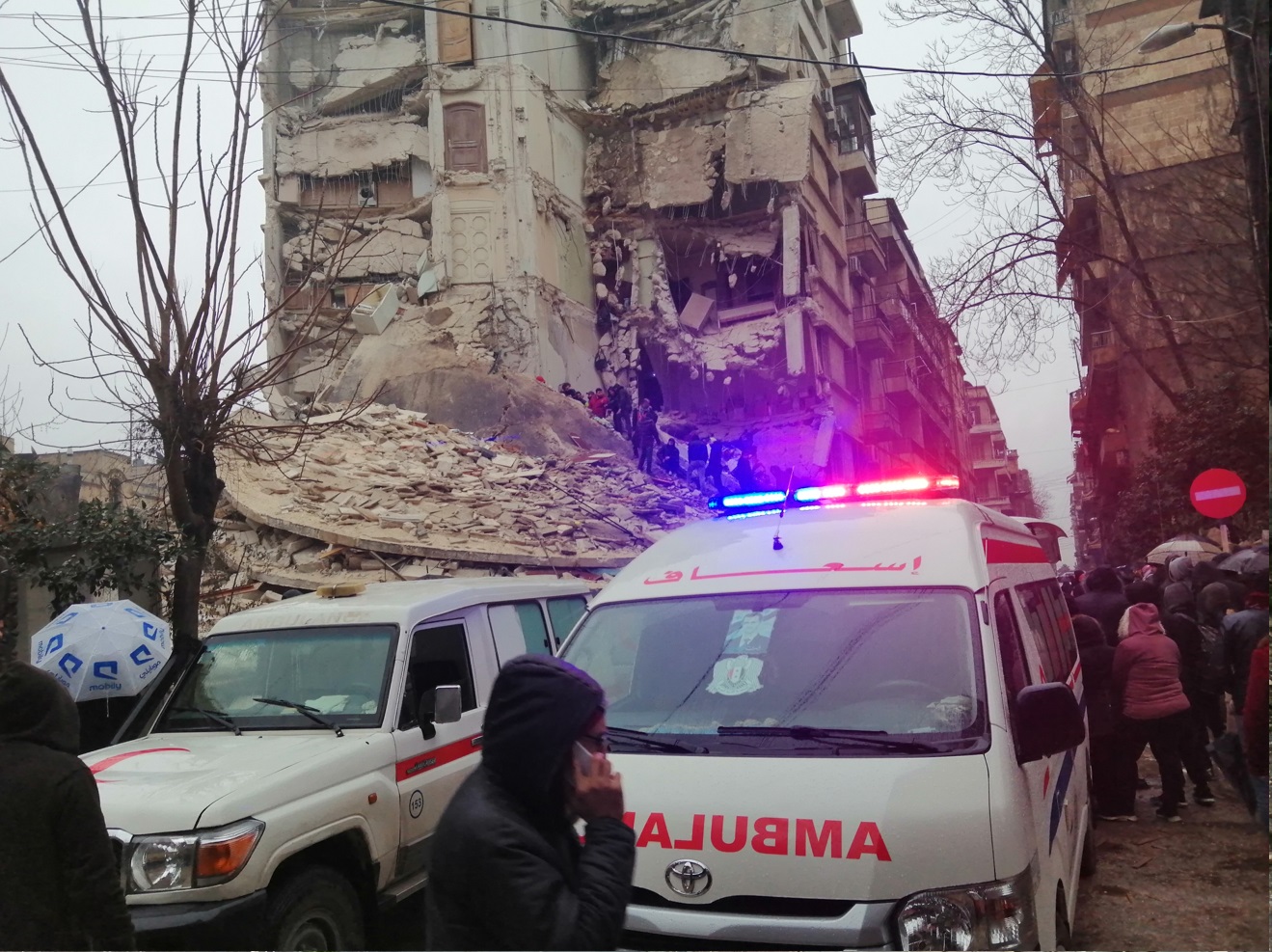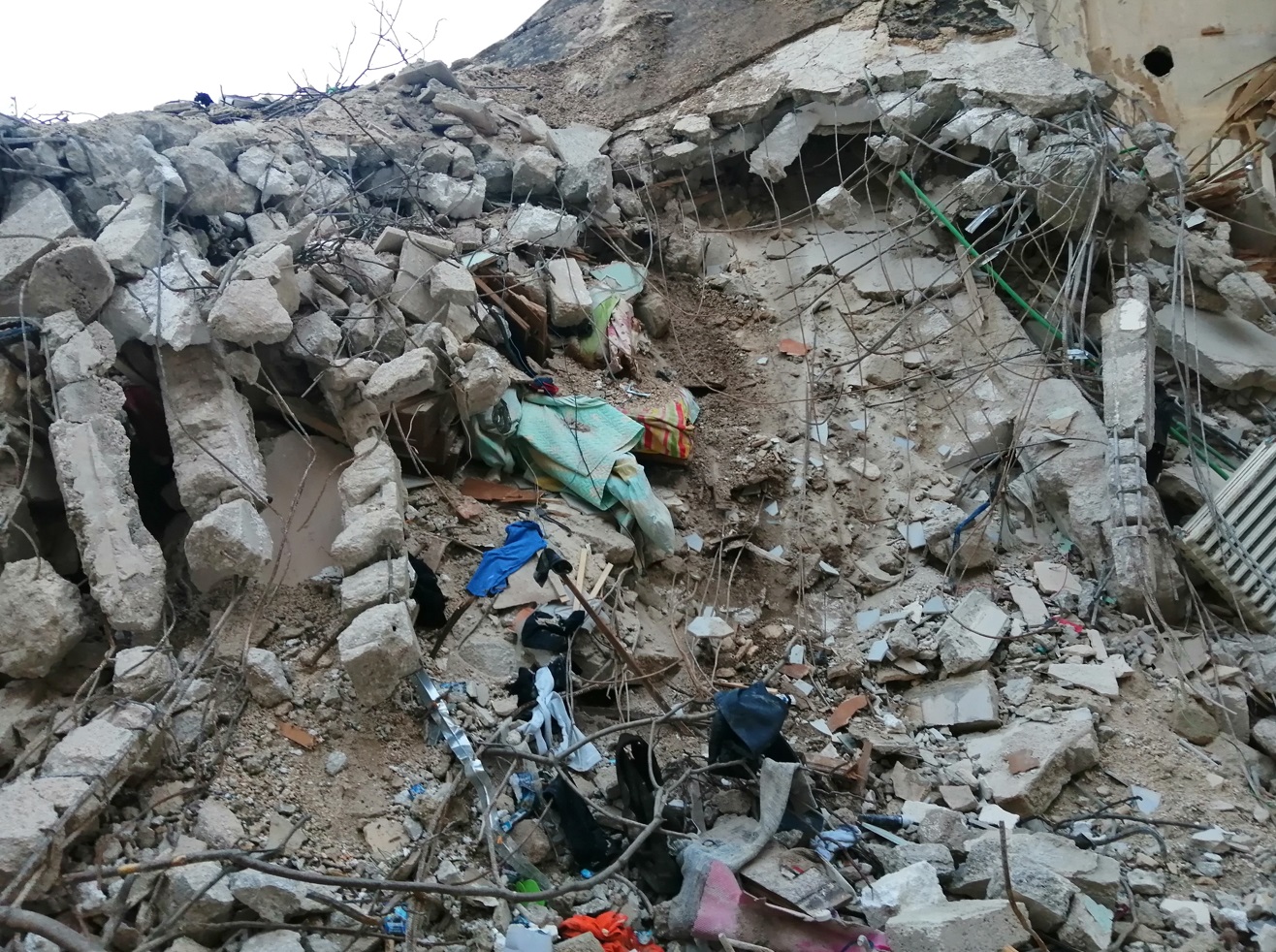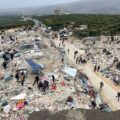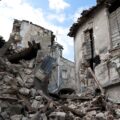
Workshop
Syria: Amidst the tragedy, young people are committed to life
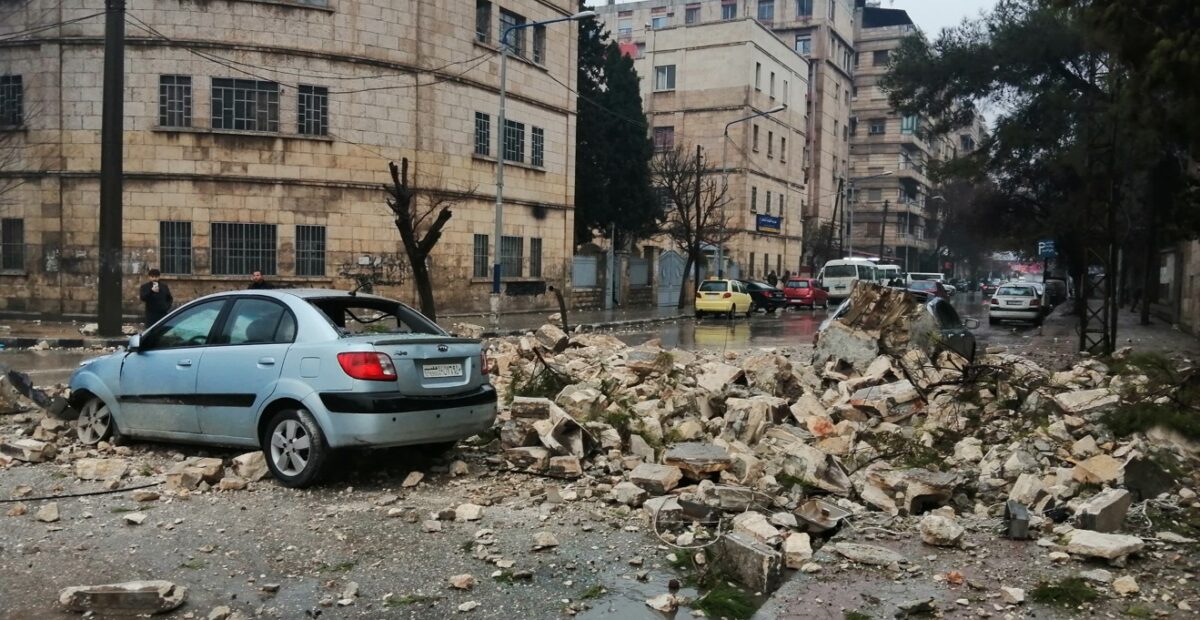
By Youmna Bouzamel
The earthquake that struck Syria on February 6 has taken its toll on its youth, in a country already weakened by twelve years of war and socio-economic hardships. Despite fear, destruction, and adverse conditions, young Syrians show once more their desire to live.
On February 6, a massive earthquake rocks Turkey and northern Syria. The toll is devastating. This is one disaster too many for the Syrian population, which is reeling from twelve years of war and socio-economic difficulties. “The (American) sanctions make living conditions unbearable. Everything is incredibly expensive, most people are starving and have nothing to eat, services like electricity are almost non-existent, transportation is unavailable, rents are high, fuel is not accessible making it difficult to keep warm,” writes Christine, a young woman from Damascus.
In several devastated regions in northern Syria, the population is left to fend for itself. The lack of electricity and infrastructure weakened by years of conflict makes rescue efforts even more challenging. “Syrian teams were pulling out victims from under the rubble in the dark or with flashlights, despite the cold and rain,” adds Christine. “Unfortunately, international relief teams and aid were slow to arrive because countries were afraid of U.S. sanctions against Syria. Many of those who died under the rubble could have been saved.”
A wave of solidarity throughout Syria
In the aftermath of the disaster, provinces across Syria expressed solidarity with the affected regions: people opened their homes, churches and hotels sheltered victims for weeks, volunteers collected and distributed food and relief supplies, etc. “Everyone was giving, even those who could not afford it,” says Christine.
In Latakia, near the Turkish border, the damage is enormous and the people whose houses are still standing are afraid to go back home. Fadi, a young engineer, joined forces with a senior engineer to inspect structures and reassure or warn residents of the need to evacuate.
“With the Youth for a United World (of the Focolare Movement) from Latakia and Baniyas we volunteered among churches. We particularly made sure that the aid did not accumulate in one place and that it was distributed to other areas in need,” says Joseph, a young man from Baniyas. “People only took what they really needed and left the rest to others,” notes Christine.
Between terror and hope
As time goes by, the memory of the earthquake and its aftershocks is just as vivid. It gives way to fear, doubt and guilt, but also to the hope of a life spent for the good, in the service of others.
“When the first tremor hit, we gathered under a blanket and, not knowing what to do, we began to pray,” says Carine, from Aleppo. “After waiting for two hours in the pouring rain and in the darkness of the night, we went home to pick up some things. I only took a rosary with me, it was the only way to feel inner peace,” recalls Noushig also from Aleppo.
“I felt like it was the last day of my life, so I started contacting my friends to apologize for all the pain I might have unintentionally caused them,” reflects Olivia from Baniyas.
“In a moment of panic, as the door to our building was blocked, I cried out, ‘Why can’t we go home anymore? Why can’t we live there anymore? Why is it so unfair?’ Then I realized that others had been hit harder and that many had disappeared. So I gave thanks for the gift of life,” says Lilian from Aleppo.
“At that moment, I felt the greatness of God, that nothing is impossible for Him, and that the sadness or hatred we feel towards others doesn’t matter, that the problems we thought were the end of the world don’t matter. To have an ordinary day, with nothing special is a blessing, to eat is a blessing, and the short life we have had is a blessing,” writes Lara from Damascus.
“The earthquake taught me one thing, just like Chiara Lubich’s experience during World War II: everything can fall apart, except God, only He remains,” writes Nathalie from Aleppo. “We are young and full of energy. At this age where we should be thinking about the future, about a better life, we live in difficult conditions, but we keep on living and fighting, despite the crises,” she adds. “We still remember the first moments of the earthquake, but life goes on and we try to put our energy into initiatives that help alleviate the suffering of others and our own at the same time.”
The NGOs Azione per un Mondo Unito (AMU) and Azione per Famiglie Nuove (AFN) continue to bring relief to people on the ground in Turkey and Syria.
